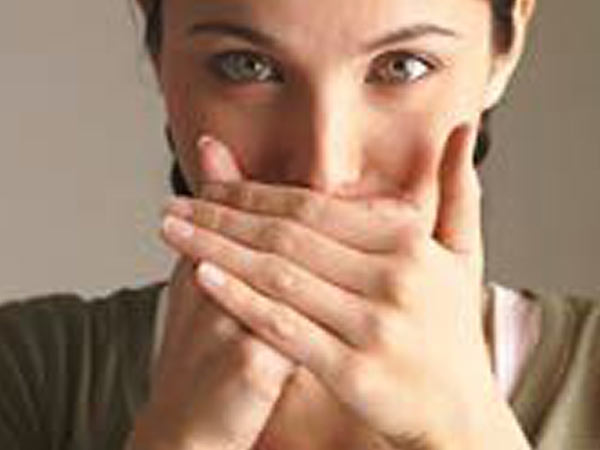Unpleasant breath is something that has affected us all at one time or another. If you suffer from chronic, severe bad breath, also known as halitosis, it’s important to identify the cause so you can determine an effective treatment. Regardless of the odor origination point, genuine halitosis affects our psyche and social life due to embarrassment from having persistent bad breath. Halitosis is more common than many people realize. You may joke about bad breath, whether it’s your own or someone else’s, but it’s an important oral health issue. Bad breath can be more than an embarrassing social problem—it can be a sign of disease or illness.
Halitosis has many causes, including the following:
- Tobacco use. If you smoke, quit. Your bad breath may be due to other causes too, but tobacco use is a guarantee of bad breath. If you are ready to quit, ask your doctor or dentist for advice and support.
- What you eat, or don’t eat. Certain foods, such as garlic, contribute to bad breath, but only temporarily. Once they are absorbed into the bloodstream, the smell is expelled through the breath, but the odors remain until the body processes the food so there’s no quick fix.
- Dry mouth. If your mouth is extremely dry, there is not enough saliva to wash away excess food particles and bacteria, which can cause an unpleasant smell if they build up on the teeth.
- Infections. Bad breath that seems to have no other cause may indicate an infection elsewhere in the body. If you have chronic bad breath and your dentist rules out any oral problems, see your doctor for an evaluation. Bad breath can be a sign of a range of conditions including respiratory tract infections, chronic sinusitis or bronchitis, diabetes, or liver and kidney problems, so it’s important not to ignore the problem.
Flossing As Prevention for Bad Breath
Need another reason to floss your teeth at least once a day? Flossing daily helps improve bad breath by effectively removing the food particles and bacteria that contribute to it. That makes flossing one of the easiest ways to prevent and banish bad breath.
Saliva is Your Friend
Less saliva means that your mouth is more susceptible to plaque buildup, which can create an unpleasant smell on your breath. Pay extra attention to any of the following circumstances that can reduce the saliva in your mouth and promote bad breath:
- Drinking alcohol. Alcohol-containing beverages may promote a dry mouth and cause bad breath. Don’t forget to floss after an evening out on the town, no matter how much you’re tempted to hop into bed and forget about it.
- Early morning. Saliva flow slows down significantly while you sleep, so you may be prone to bad breath in the morning. If so, mornings may be the best time for your daily dental flossing.
- Being hungry or thirsty. When you’re dehydrated, there’s not as much saliva in your mouth, so you’re prone to bad breath and increased bacterial buildup. Drink enough fluids and remember to floss. Also, remember that chewing food increases the saliva in your mouth, so if you’re skipping meals or dieting, you may develop bad breath. People who are following extremely low carbohydrate diets also sometimes report bad breath, but these reports are anecdotal. If you’re on a low-carb diet, or any restrictive diet, you may be promoting bad breath. If you must restrict your food intake and eat infrequently, drink plenty of water to help maintain the level of saliva in your mouth to help prevent bad breath in addition to following a good oral care routine.
Other Causes
If you experience chronic bad breath that doesn’t seem to improve despite a consistent oral hygiene routine, talk to your dentist and doctor for further evaluation to identify or prevent serious health problems. Sometimes bad breath can be a sign of a more serious issue. Some serious oral health conditions associated with bad breath include:
- Throat problems such as strep throat.
- Dental cavities or gum disease.
- Throat or oral cancer.
- Tonsils that contain trapped food particles.
- An infected root canal
In addition, bad breath can be a symptom of a variety of serious non-oral health problems including liver disease, diabetes, HIV, digestive system ailments such as reflux and even lung infections or lung disease.
The best way to improve bad breath is to follow a thorough oral care routine including twice-daily tooth brushing and daily flossing to remove the food particles and bacteria that can cause bad breath. Please express any concerns regarding halitosis at your next dental hygiene visit.


